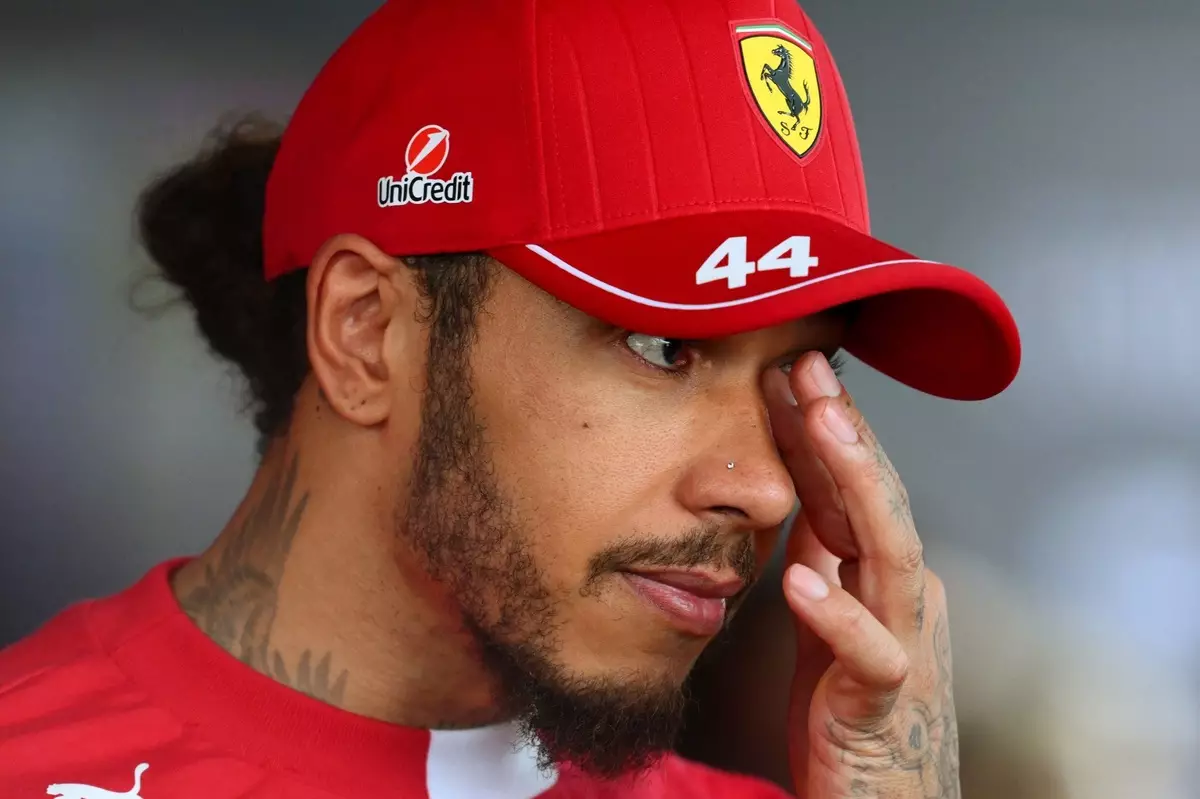In the high-stakes world of Formula 1, frustration is often mistaken for weakness, yet it is more accurately a sign of deep commitment and the hunger for excellence. Lewis Hamilton’s recent struggles at the Hungarian Grand Prix highlight this phenomenon vividly. Being eliminated early in qualifying, especially after such a commanding career, can be psychologically taxing. When Hamilton expressed his dissatisfaction so openly—questioning the team’s choices and his own prospects—it revealed a crucial truth: even the most accomplished athletes are vulnerable to moments of doubt and disappointment. His reaction, far from being a sign of a broken spirit, underscores his relentless pursuit of perfection.
Hamilton’s emotional response also spotlights the immense pressure tied to being a seven-time world champion. The gap between expectations and reality can feel unmanageable in a sport where milliseconds decide fates. His statement about Ferrari needing a different driver was less a cry of despair and more a reflection of his intense self-evaluation—implying he demands nothing less than perfection from himself and his team. Recognizing these feelings isn’t a sign of weakness, but an essential step in channeling frustration into fuel for future success.
Leadership and Perspective: Vasseur’s Calming Influence
Fred Vasseur’s comments offer a reminder that even in the crucible of racing, perspective is vital. Instead of dismissing Hamilton’s comments as mere venting, the team principal emphasizes understanding and the importance of resilience. Vasseur’s acknowledgment that Hamilton is demanding but not demotivated reveals a leadership style rooted in support rather than criticism. His recognition of how emotions run high immediately after races is a testament to the mental demands of the sport.
This approach underscores a broader truth: greatness often emerges not in perfect conditions, but in how individuals respond to adversity. Vasseur’s assertion that Hamilton is capable of bouncing back, despite the setback, reinforces the idea that setbacks serve as opportunities for growth. Instead of viewing frustrations as signs of a failing mindset, they should be seen as catalysts that propel athletes to refine their craft and push their limits.
The Thin Line Between Luck and Skill
One of the most revealing parts of Vasseur’s analysis concerns the narrow margins that determine success in F1. Hamilton’s weekend, though disappointing on the surface, was technically not far from better outcomes. It highlights an uncomfortable truth in racing: at elite levels, results often hinge on tiny differences—tenths of a second, small laps of judgment, or micro-optimizations.
Hamilton’s Q2 exit, despite his formidable talent, underscores how crucial consistency and precision are. Vasseur’s comments about how close Hamilton was to reaching Q3 and how he was just a fraction of a second behind Leclerc bring into focus the frailty of dominance—in racing, everything is fleeting, and luck or misfortune can tilt the scales. Yet, this very fineness fosters resilience: knowing that success is a delicate balance motivates drivers to analyze, improve, and refine their craft relentlessly.
Turning Frustration into Future Triumphs
The real takeaway from Hamilton’s recent struggles isn’t the temporary setback but the opportunity it presents. His raw expression of disappointment indicates a driver deeply invested, refusing to settle for mediocrity. Such intense self-criticism, if harnessed properly, can serve as a springboard for renewal.
In the context of high-performance sports, setbacks are inevitable. The key lies in transforming these moments of despair into strategic pivots. Hamilton’s experience suggests that embracing vulnerability—acknowledging frustrations without letting them define you—can energize a comeback. The upcoming races will serve as a litmus test: whether he allows this episode to become a distraction, or leverages it as fuel to elevate his performance.
Rather than dismissing frustration as a sign of failure, a champion recognizes it as a manifestation of their passion and desire to improve. It is precisely this emotion that can ignite a renewed commitment to pushing boundaries. In Formula 1, resilience isn’t just about weathering storms—it’s about channeling those storms to forge a stronger, wiser athlete. Hamilton’s future performances will undoubtedly be shaped by how effectively he transforms his recent disappointment into a robust drive for redemption.

